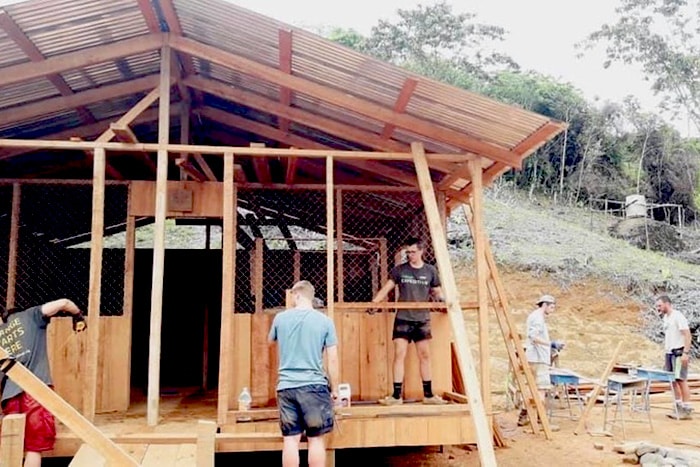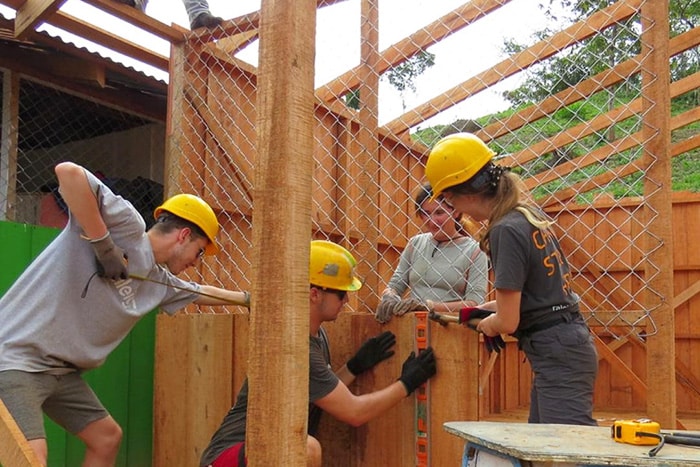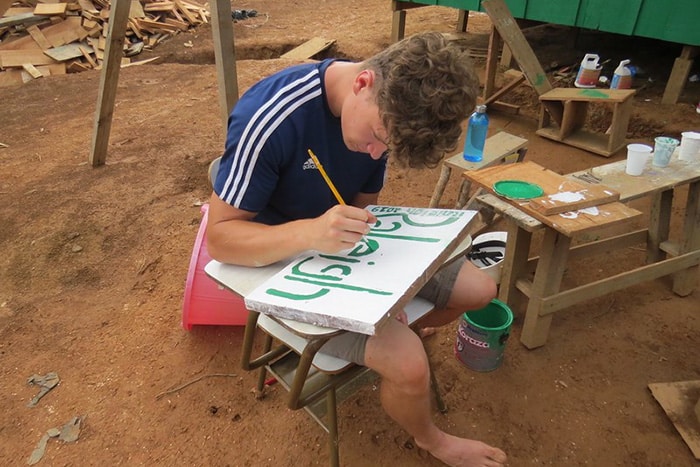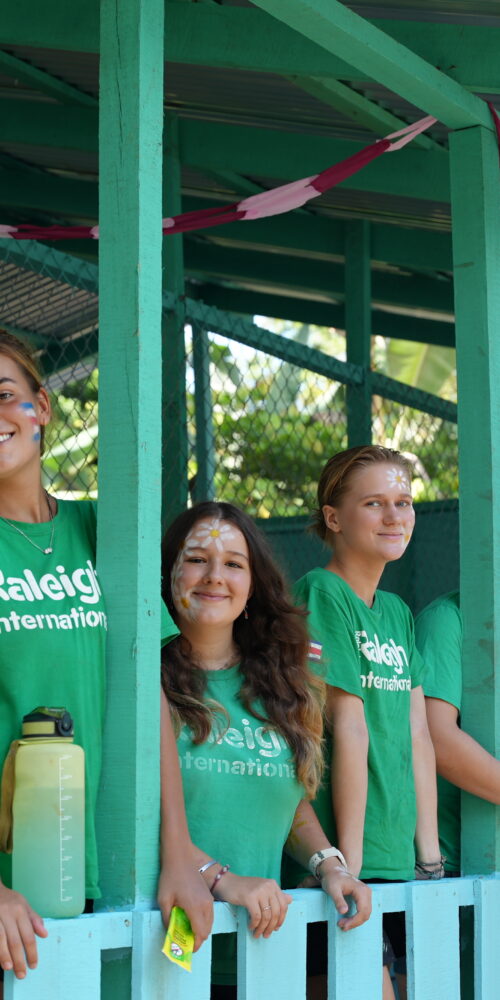Newcastle University Partnership to Improve Education in Costa Rica
Home | Costa Rica |
The partnership makes excellent use of the expertise the engineers have gained through their degree course; designing and building infrastructure to improve the health and wellbeing of children in communities where Raleigh works, and boost their attendance and engagement at school.
This was most certainly the focus for the nine Newcastle University students who recently joined Raleigh’s 4-week expedition in Costa Rica. Working alongside community leaders and the Indigenous Association for Development, the group of students were tasked with designing and constructing a kitchen for an existing school in the indigenous territory of Dorbata. Identified by the National Ministry of Education as a community that needs improved infrastructure, the kitchen will provide proper school meals to the local children, allowing for longer and more constructive days. This project also encompasses a longstanding aim of Raleigh’s, to reduce the growing gap of educational inequality between indigenous communities and wider society in Costa Rica.

When asked about the reason for signing up to volunteer for Raleigh in Costa Rica, a huge motivation for the Newcastle students was the opportunity to apply their technical knowledge from university in a challenging environment. This was something the group experienced early on in the infrastructure project when going through designs for the kitchen. Ensuring project sustainability, the team worked to collect materials from the surrounding areas, overcoming limited supplies by most effectively allocating the good wood.
“This was an excellent way to test our engineering problem-solving skills, and gain experience in working with limited resources in such a unique environment, and different culture.”

When digging out the foundation of the kitchen and assembling the wooden structure, the group also relayed that project management skills were crucial.
“It was incredibly important to task plan, and role allocation each night helped us to identify one another’s strengths and where we would be most useful. This helped to improve all of our leadership and team working effectiveness. We gained a lot as a group, instilling a strong work ethic, and learning the importance of outlining an effective and supportive way of working.”
Working alongside and socialising with the local community also proved very insightful and rewarding for the students, and football matches and language workshops encouraged cultural exchange. Awareness-raising action days, and organised focus groups with the local parents’ association and community members facilitated discussion around the importance of continued education and provided a forum for debate about potential issues still prominent in Dorbata. This enabled the group to better understand the needs of the community and plan for additional infrastructure. Recognising that a community is about more than function, the students went beyond the initial brief designing gym equipment, a tennis table and volleyball nets, to provide social areas and spaces for extracurricular activities and interpersonal development.

When asked about the highlight of their experience, the group all agreed that it was “getting to know a completely different culture, understanding real sustainability development issues and realising the long-term positive impact of their efforts.” The students went on to say that they felt that this module offered to Civil Engineers at Newcastle University is one of the educational institution’s unique selling points and largely why many of them chose to study there. In addition, having broadened their experience and skills within the industry, when considering their future career paths, many are now exploring opportunities within humanitarian and environmental engineering.
On their last day in Dorbata, sharing a meal prepared in the newly-built kitchen with the head teacher and school children, and watching the community play volleyball and table tennis, the group were all in agreement that their time with Raleigh had been an incredibly fulfilling experience. The programme, which challenged the nine students to find a successful balance between theoretical knowledge and practical implementation had been, as they all agreed, “the best and most informative university module we have done.”


